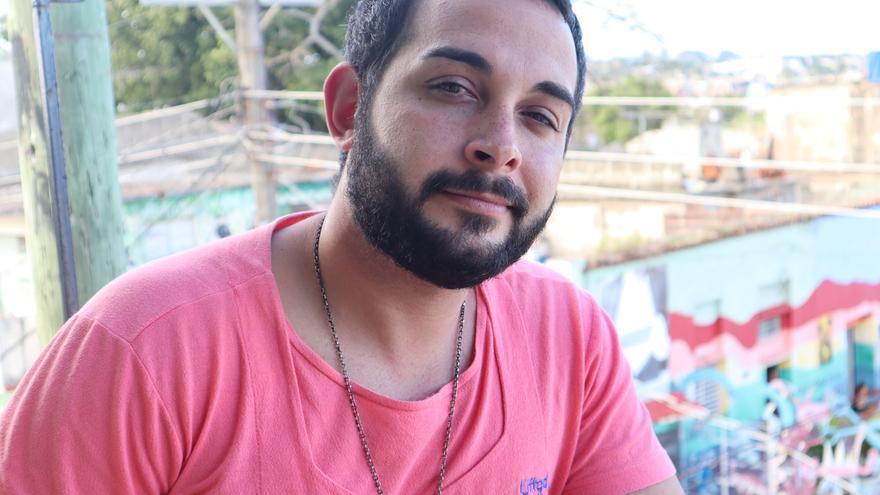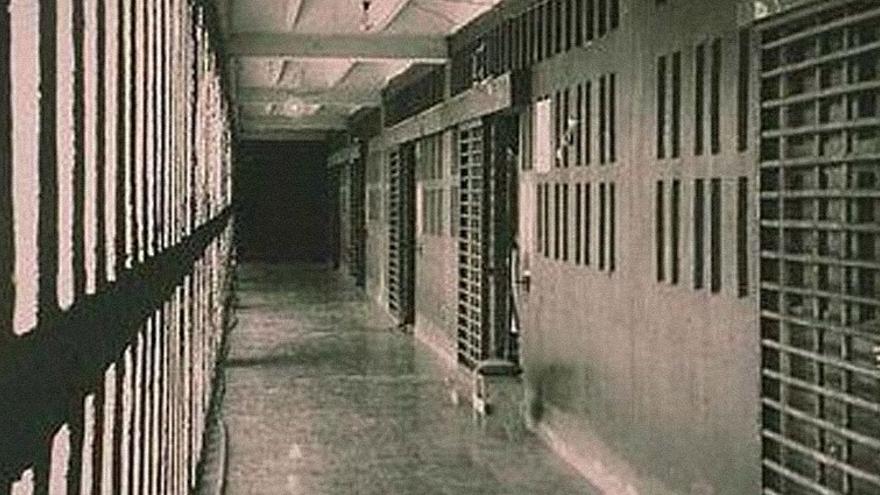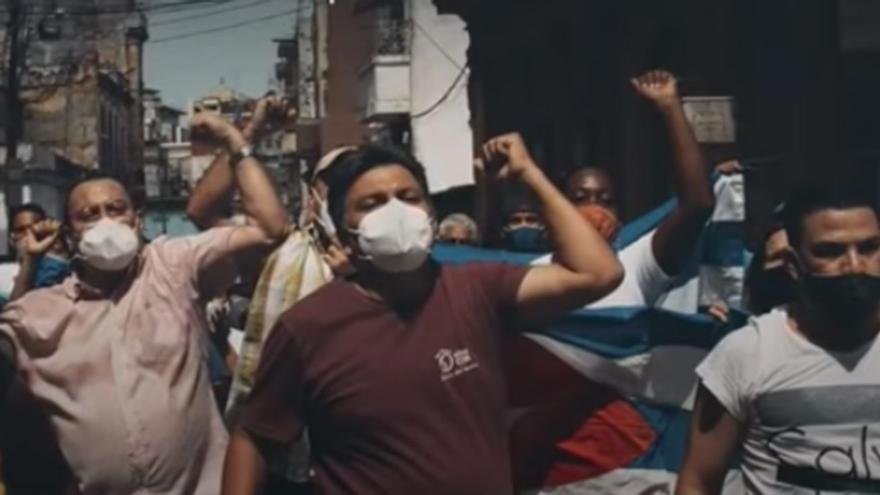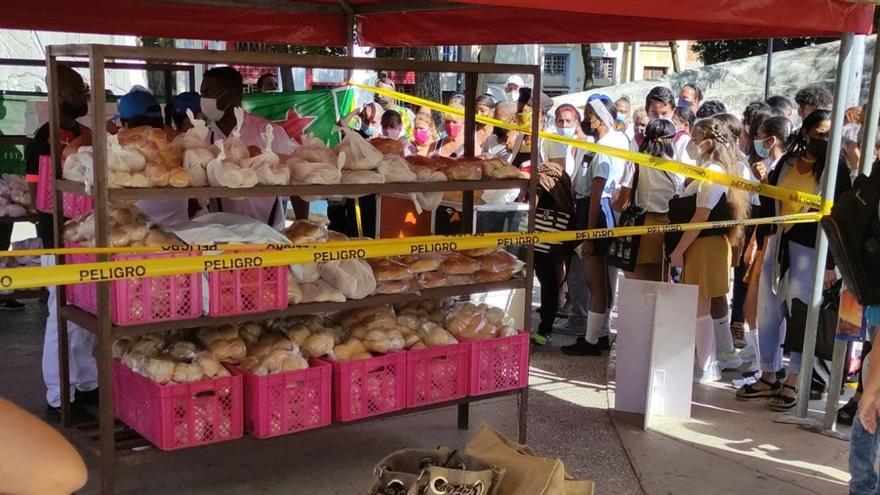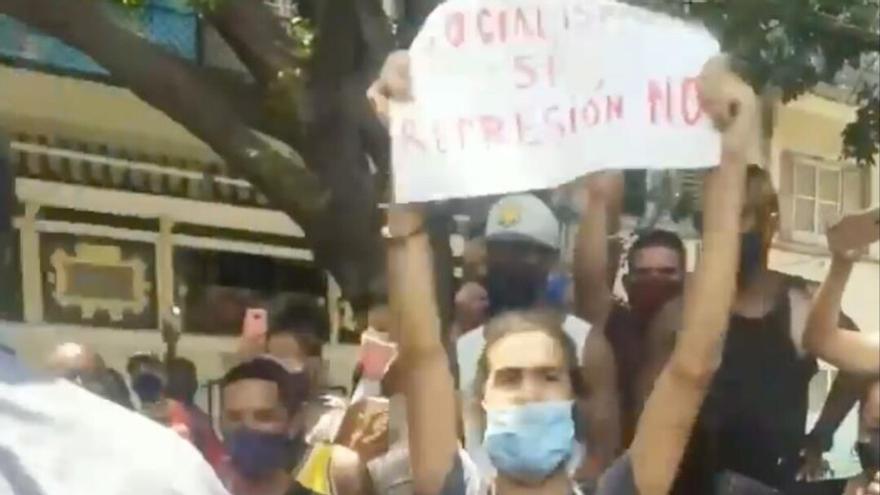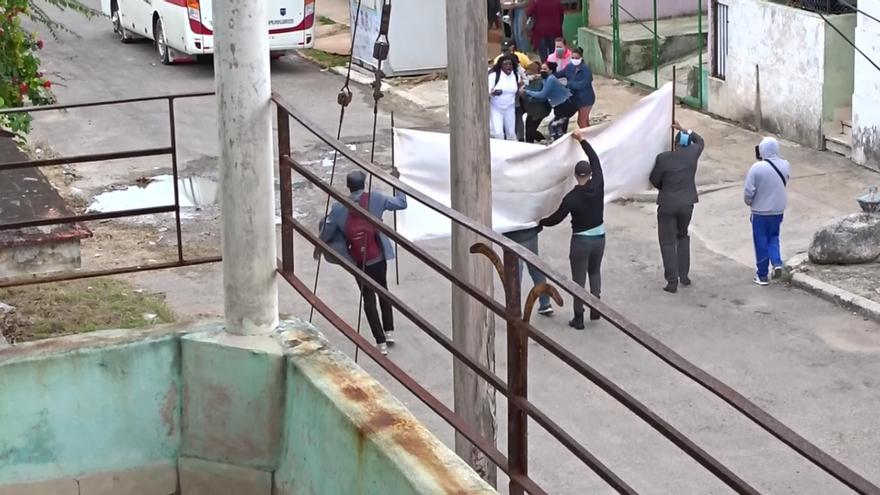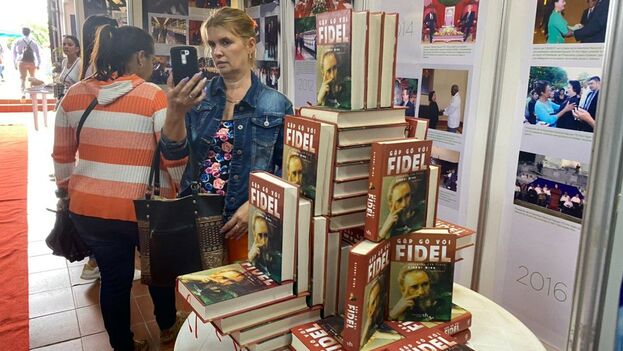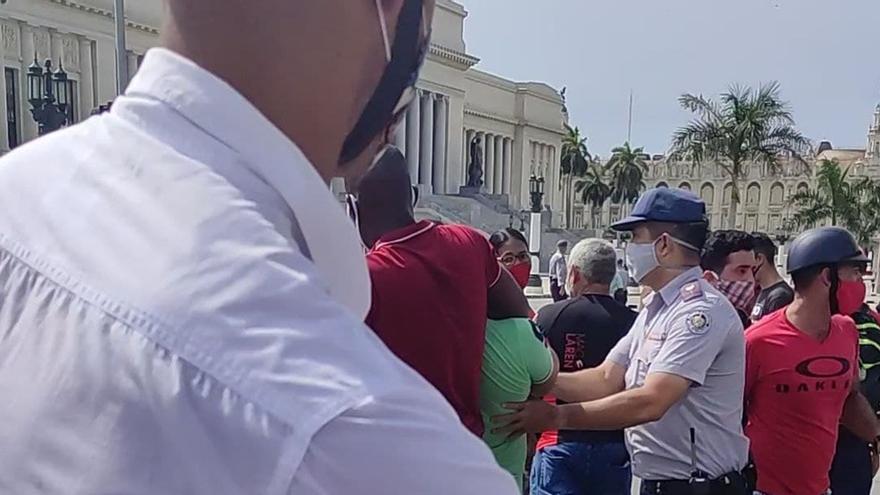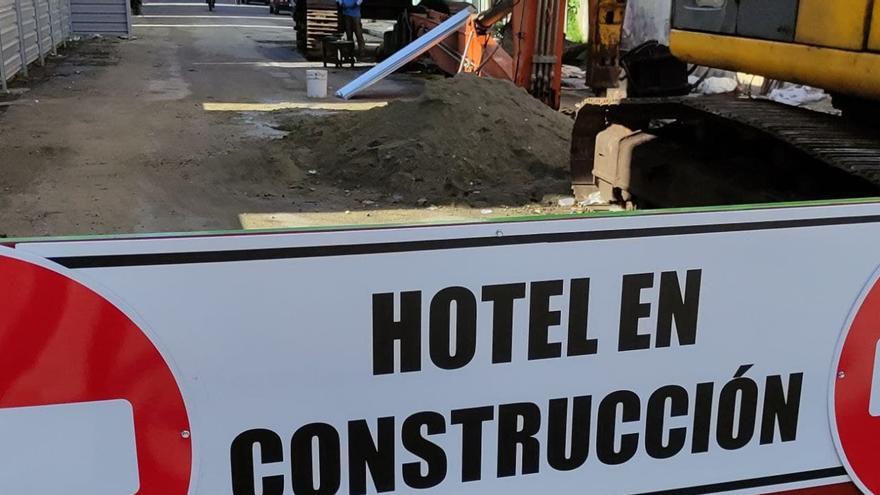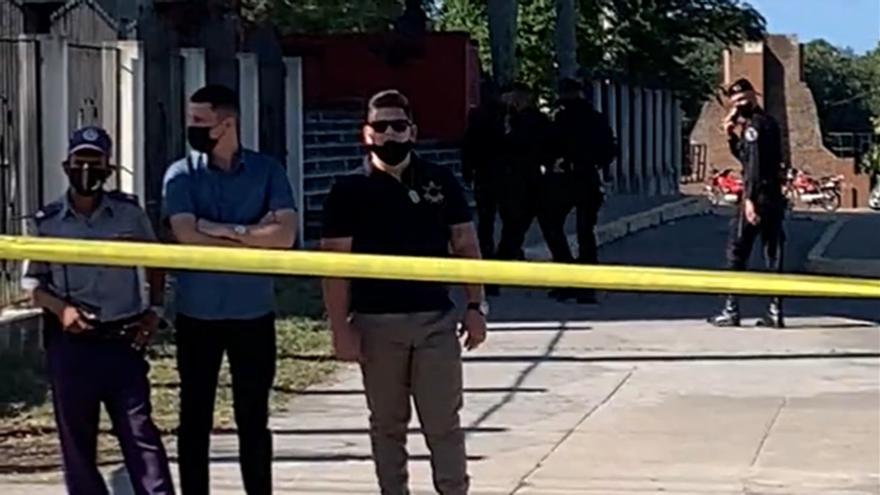At the age of 20, he realized that “he could be a Baptist Christian and love another man without being condemned to hell” within this denomination, which belongs to the official Cuban Council of Churches and is the only one that ordains women.
They are going to oppose the issues of same-sex marriage, same-sex adoption, assisted reproduction for same-gender couples, and supportive gestation, which are rights that are directly linked to the LGBTI community, and also [against] an issue that they worries a lot, which is that of parental responsibility. Those are going to be the points that they are going to focus on.
What probably won’t happen is that these churches launch large demonstrations in the streets. First because of the health situation. And, second, because I believe that we are not going to see events like these in Cuba again for a long time, at least not anything of a character contrary to the Cuban Government or to any of the initiatives of the Cuban Government.
14ymedio. Some religious groups claim that they actually campaigned more broadly for individual rights, but that all the attention went to the issue of same-sex marriage. Do you think this is a fair claim?
AGM. Their opposition was to same-sex marriage. This was the case, regardless of whether within these Churches there were pastors who advocated a multi-party system or the direct election of the president. There are pastors in the Methodist Church or in the Western Baptist Convention, for example, who have positions contrary to the prevailing political, economic and social system in Cuba, but that does not mean that these are the positions of the denominations. That has to be completely separated. The common agenda was against article 68, not against the Communist Party.
14ymedio. After that, the Alliance of Evangelical Churches was created, an independent organization that in some way challenges the Council of Churches of Cuba. That was also historic.
AGM. Yes, but it was something very ephemeral. The Alliance arises against the Council of Churches, because the Council never ruled against article 68: it gave its members the freedom to freely decide what position to take. The Alliance then arises, but it fractures shortly after because the agenda seemed to take on a more political nuance, different from the traditional anti-LGTBI. So some denominations decided to leave. They never said it publicly, but it is clear that one of the causes was the marked right-wing character that some leaders of these fundamentalist churches were taking. That is why others decided to separate, so that one thing [would not] mix with the other. None of this was explicitly stated, but I read it between the lines.
14ymedio. What do you mean when you say that it began to disintegrate due to the right-wing character of some of its leaders?
AGM. Because its founding leaders had well-known public relations with figures such as Teo Babun and the Evangelical Christian Humanitarian Outreach for Cuba (ECHO-Cuba), an organization considered subversive by the Cuban government and linked at the time to the Donald Trump government.
That is why it was known that this initiative was not going to prosper. And so much so that, three months after its foundation, one of the denominations that created it, the Baptist Convention of Western Cuba, left, and with certainty the pressure from the Cuban authorities was a determining factor in this decision.
14ymedio. Do you think then that the Alliance has been a failure?
AGM. I think so. Nothing has been heard of this organization for a long time. They have made no more pronouncements, not even in the face of the events that have occurred in the country in recent months: the demonstrations of July 11, the proposal of [a demonstration on] November 15 or the presentation of the Family Code itself and its approval in the Assembly in December 2021. Nothing has been heard from that organization and I do not think it will be heard from again, unless they are reactivated now, during the popular consultation on the Family Code, where it is proposed to approve equal marriage and other rights that favor the LGBTIQ+ community, which is the only concern of this type of organization.
14ymedio. Is it fair to attribute the non-inclusion of same-sex marriage in the Constitution only to the effect of the campaigns carried out by conservative religious groups, or do you think it was also an issue that divided the ruling party and even society in general?
AGM. No. The non-inclusion of same-sex marriage in the 2019 Constitution was not only due to the campaign unleashed by fundamentalist churches, although it was a key factor. Hetero-patriarchy is an evil that survives in Cuban society, despite the advances that have been achieved in recent decades. That evil was presented with great force in the popular debates around the Constitution and what was then article 68. And, at the same time, it is not a secret to anyone that there was opposition within the leadership of the State and the Cuban Government, in the Communist Party itself and even in the National Assembly of People’s Power.
14ymedio. Several Latin American countries are registering an accelerated growth of the Neo-Pentecostal fundamentalist Churches. Do you think it is the same in Cuba?
AGM. Neo-Pentecostalism is not yet a numerically powerful force in Cuba, as far as I know. Here fundamentalism is more visible in Churches with a longer history of presence and work in our country: the Western and Eastern Baptist Conventions, the Methodist Church, the Evangelical League, the Assemblies of God Pentecostal Church and other Pentecostal denominations that have been working in Cuba since the 1950s.
14ymedio. Why do you think Christian fundamentalism has gained strength in Cuba? What are the causes behind this strengthening?
AGM. It was in the 90s of the last century when this phenomenon manifested itself with greater force and visibility. It was the time of the boom of religious practice in Cuba, and not only within Christianity. The reasons are diverse, but without a doubt the collapse of the socialist camp and the infamous Special Period, with all its shortages and challenges, prompted people to seek refuge from the collapse of the entire philosophical and life system they had believed until that moment, with all that this implied in the economic, political-social and ideological spheres. Since then, within the religious sectors that have grown most steadily, the conservative and fundamentalist churches stand out. This is also the case in the rest of Latin America.
In these churches, spaces for socialization and empowerment are created, especially for young people, something that I see as positive. At the same time, many of them emphasize prosperity and economic well-being, all favored by simplistic and sensationalist messages and activities where technology and social networks play an increasingly important role. And in a country like Cuba, where social inequalities and deficiencies in a large part of the population are increasingly pressing, the existence of these spaces of hope and even of escape from daily problems is, without a doubt, attractive.
AGM. Would you say that it is the poorest people who are approaching the Protestant religion?
AGM. In these Churches, the experience of faith is promoted more than critical logic, and that may be a reason why the less favored groups of society, say the poorest, with the lowest (levels of) education, join them. That is a reality, although it hurts to admit it. But this does not mean – because there is sometimes a cliché – that these churches are filled only with marginalized people or groups. That is not entirely true. In these Churches there are also many professionals and educated people, which speaks of the complexity of this phenomenon.
14ymedio. What worries you most about the advance of fundamentalism?
AGM. The point is that the Christian fundamentalist system of thought is uncompromising. It shows an inability to dialogue and refuses to accept alternatives or criticism of their way of understanding a doctrine or another aspect of reality. In addition, it defends the hetero-patriarchal model of family and society. For this reason, it is capable of violating the human rights of communities such as LGBTIQ+ and women.
14ymedio. Several Protestant pastors were imprisoned or repressed after 11J. Do you see a greater distancing of the Churches from the Government since then, including a greater confrontation?
AGM. I do not think there is a [greater] distancing of the denominations from the Government. There were pastors repressed or imprisoned for demonstrating on July 11 and there was a solidarity movement of some other pastors towards them, but since they were released, everything has remained there.
There are Churches whose beliefs do not coincide with the positions of the Cuban Government in many aspects. These Churches have generally declared themselves apolitical. But this is a position of distancing, not of confrontation, although there are pastors who do confront each other more openly. That has been the case historically and has not changed since July 11th.
14ymedio. But some of the Churches that are not recognized by the State have been more activist.
AGM. There are other minority groups, also fundamentalists, who have maintained a position of more opposition, of confrontation, but they are small groups.
And, at the same time, there is a third side: that of the Churches, pastors or ecumenical movements, whose beliefs have points in common with the Cuban Government: groups within the Presbyterian Churches, the Fraternity of Baptist Churches, some independent ones, institutions that belong to the Council of Churches. They are the ones who met with President Díaz-Canel. These groups make criticisms, but they don’t walk away.
14ymedio. Do you think it is possible that Christianity has a relevant role in the opposition to the Cuban regime (as Catholicism had in the fall of communism in Poland, for example)?
AGM. I don’t think so at all. The Churches and their members have different positions regarding the political-social system that exists in Cuba today. Some offer explicit support, without the slightest doubt, although with criticisms of the system; others with a tacit opposition, not open; and, to a lesser extent, an explicit confrontational opposition with the government. But, at the same time, the denominations have interests to take care of so as not to lose their capacity for work and dialogue with the Cuban authorities. That is an inescapable reality, no one can ignore it.
So, yes: opposition initiatives exist, dissidents within the Christian sector exist, as they exist in society as a whole; but at the moment I don’t see it as something significant, something that will make a big difference, beyond the traditional opposition to the approval of rights for the Cuban LGBTIQ+ community.
________________________
Editor’s Note: This work was supported by the Institute for War & Peace Reporting (IPWR), written by Javier Roque Martínez and edited by 14ymedio. The IPWR is an independent, nonprofit organization that works with the media and civil society to promote positive change in conflict zones, closed societies, and countries in transition around the world.
____________
COLLABORATE WITH OUR WORK: The 14ymedio team is committed to practicing serious journalism that reflects Cuba’s reality in all its depth. Thank you for joining us on this long journey. We invite you to continue supporting us by becoming a member of 14ymedio now. Together we can continue transforming journalism in Cuba.
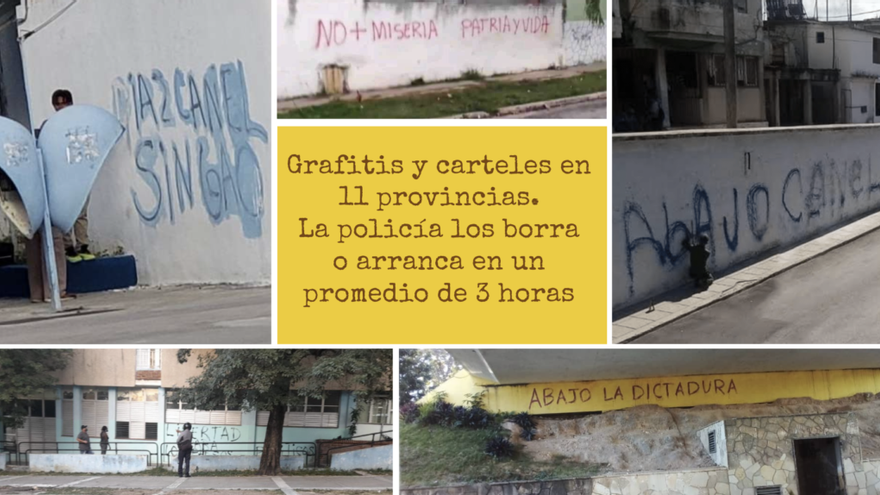
![]() 14ymedio, Havana, 1 February 2022 — Growing repression in Cuba has not prevented anti-government demonstrations. According to the latest report from the Cuban Conflict Observatory (OCC), a total of 275 protests occurred in January, the majority (175 or 65%) of which were politically motivated, and among them, 160 had to do with prisoners detained as a result of the July 11th (11J) protests.
14ymedio, Havana, 1 February 2022 — Growing repression in Cuba has not prevented anti-government demonstrations. According to the latest report from the Cuban Conflict Observatory (OCC), a total of 275 protests occurred in January, the majority (175 or 65%) of which were politically motivated, and among them, 160 had to do with prisoners detained as a result of the July 11th (11J) protests.


